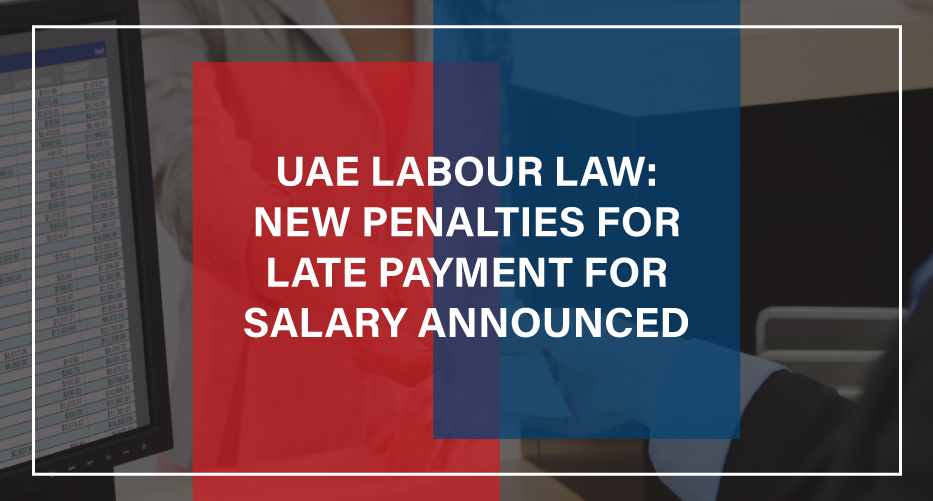
Understanding Late Payment of Salary in the UAE: A Complete Guide for Employees and Employers
Receiving payment on time is one of the most fundamental rights of every employee. But what happens if your salary is delayed? This guide explains everything you need to know about late payment salary, why it happens, what the law says, what actions you can take, and how employers should handle it.
Whether you’re an employee waiting for your paycheck or an employer facing delays, this article will walk you through all the essential details.
What Is Late Payment of Salary?
Late payment salary means that your employer did not pay your salary on the expected Date. This usually happens when the company fails to transfer the wages on the agreed-upon payday. It can be a one-time issue or something that happens regularly.
A late payment salary is a serious issue because employees rely on their monthly pay to cover essential needs such as rent, food, transportation, and school fees. Even a slight delay can cause significant problems in someone’s daily life.
When Is a Salary Considered Late?
In the UAE, employers are expected to pay salaries within a specific number of days after the due Date. If they miss this deadline, the salary is considered delayed. The law gives companies a short grace period to make the payment. Still, after that, it becomes a late payment salary issue.
Usually, if your salary has not been paid within 15 days of the expected payday, it is considered late. After this point, employers may face consequences from the authorities, especially if the delay continues for more than a Month.
Why Do Late Salary Payments Happen?

There are several reasons why late salary payments occur. Here are some of the most common ones:
- Cash Flow Problems: Sometimes, the company lacks sufficient funds to pay all salaries on time.
- Payment System Errors: A mistake in the payroll or bank system can delay payments.
- Poor Planning: Some companies fail to manage their finances effectively, resulting in salary delays.
- Company Shutdown or Restructuring: Businesses that are closing or undergoing a change in management may delay salaries during the process.
- Intentional Delays: In some cases, employers may intentionally delay salaries to control employees or avoid costs.
Whatever the reason, delaying salaries is unacceptable and can cause significant problems for workers.
What Are Your Rights as an Employee?
If you are facing a late salary payment, you have rights. You do not have to stay silent or wait for action. In the UAE, employees are protected by labor laws that require companies to pay on time.
As an employee, you have the right to:
- Receive your full salary on time, as stated in your employment contract.
- Ask for an apparent reason if your salary is delayed.
- Submit a complaint to the labor authorities if the delay continues.
- Take legal action if the salary is not paid even after several reminders.
What to Do If Your Salary Is Delayed
If your salary late payment issue continues, you can take the following steps:
1. Talk to Your Employer
The first step is to communicate directly with your HR department or manager. Ask them for a clear explanation of the delay and when you can expect your salary. Sometimes, the issue is a minor mistake that can be easily corrected.
2. Write a Late Salary Payment Letter
If talking doesn’t help, you can write a formal letter to your employer regarding late salary payment. This letter should include your name, employee ID (if any), the salary month that was missed, and a polite request for immediate payment.
Here’s a simple sample:
Subject: Request for Payment of Delayed Salary
Dear [Manager’s Name],
I am writing to inform you that my salary for the Month of [Month] has not yet been received. According to my employment contract, I was expecting payment on [Date].
I kindly request that you process the salary at your earliest convenience. I appreciate your attention to this matter.
Sincerely,
[Your Full Name]
[Your Position]
3. File a Complaint
Suppose you still haven’t received your salary after submitting your letter. In that case, you can file a complaint with the UAE labor authorities. You can complete this process online, by phone, or by visiting your nearest labor office. Once the complaint is submitted, the authorities will investigate the issue and help resolve it.
What Happens to Employers Who Delay Salaries?

Employers who fail on late payment salary on time may face serious consequences, particularly if the delay exceeds 30 days. Here are some possible penalties for companies that delay salary payments:
- Warnings from labor authorities
- Fines for each delayed payment
- Suspension of new work permits
- Investigations into company records
- Legal cases filed by employees
Companies are strongly advised to pay salaries on time to avoid these penalties and protect their business reputation.
What Employers Should Do to Avoid Salary Delays
If you are an employer, it is your responsibility to make sure your staff are paid on time. If delays are unavoidable due to a genuine reason, ensure that you inform your employees clearly and promptly.
You should also issue an apology letter for late salary payment to show that you respect your employees and are taking the matter seriously.
Here’s a sample:
Subject: Apology for Salary Delay
Dear [Employee’s Name],
We want to apologize for the delay in salary payment for the Month of [Month]. The delay was caused by [brief reason].
We understand the inconvenience this may have caused and assure you that the full payment will be made by [Date].
Thank you for your patience and understanding.
Sincerely,
[Your Name]
[Your Position]
By being honest and respectful, employers can maintain trust even in tough times.
How Repeated Delays Affect Employees
When salaries are delayed, employees can face many difficulties:
- Late rent payments
- Missed loan or credit card bills
- Stress and low morale at work
- Difficulty supporting their families
- Loss of trust in the company
In some cases, workers may decide to leave the company if the delays continue. A business that cannot manage salary payments regularly may also face higher staff turnover and a damaged reputation.
Can You Resign Because of a Late Salary?
Yes, if your employer fails to pay your salary on time for an extended period, you may have the legal right to leave your job. However, before taking such a step, it’s essential to follow the proper legal process:
- Keep all records of unpaid salaries.
- Write to your employer to ask for payment.
- File a formal complaint with labor authorities.
- Wait for official guidance before resigning.
Leaving your job suddenly without proper notice or complaint may create legal problems. It’s always better to follow the appropriate process.
How Long Should You Wait Before Taking Action?
Suppose your salary is delayed for more than 15 days. In that case, you should first contact your employer and send a letter requesting late salary payment. If it continues for 30 days or more, it’s time to file a complaint with the labor department. Please do not wait for several months, hoping the issue will solve itself.
Timely action helps you recover your rights and protects other employees who may also be affected.
Can Salaries Be Deducted or Reduced?
No, employers cannot delay or reduce salaries without a valid reason and written agreement. If your salary is reduced or paid partially without your consent, it is considered unfair and may be unlawful.
You are entitled to receive your full salary as specified in your employment contract, unless you have signed a new agreement with different terms.
What Happens After You File a Complaint?
Once you file a salary complaint with labor authorities:
- A case is opened and assigned for review.
- The employer is asked to explain the delay.
- Both parties may be called for a meeting.
- If the salary is not paid, the matter may be referred to court for resolution.
- The court may order the employer to pay the wages with possible penalties.
The process may take anywhere from a few days to several weeks, depending on the specific case. Still, employees are usually protected under UAE law.
Tips for Employees Facing Late Payment of Salaries
- Always keep a copy of your employment contract.
- Save your salary slips and bank payment records for future reference.
- Communicate politely and professionally with your employer.
- Use written letters and emails instead of verbal complaints.
- Know your rights and don’t hesitate to seek legal support.
Need Help with Late Salary Issues?
Suppose you’re facing a late payment salary issue or are an employer unsure of how to resolve salary delays legally and properly. In that case, our team is here to help. We provide professional guidance and document support—from writing a late salary payment letter to filing a complaint. Please send us a message on WhatsApp now and get fast, friendly assistance. Don’t wait—take action today to protect your rights and peace of mind.
Final Thoughts: Protecting Your Right to Timely Salary
Salary late payment is more than just a delay—it’s a violation of your fundamental rights. Whether you are an employee waiting for your hard-earned income or an employer trying to manage company responsibilities, timely communication and action are essential.
If you’re an employee, take the proper steps to protect yourself:
- Speak up early.
- Send a formal letter regarding the late payment of salary.
- File a complaint if the delay continues.
If you’re an employer, always pay your team on time. And if there’s an unavoidable delay, explain the situation clearly and send an apology letter for late salary payment to maintain trust.
Salaries are not just numbers—they are the result of hard work, and every worker deserves to be paid fairly and on time.





